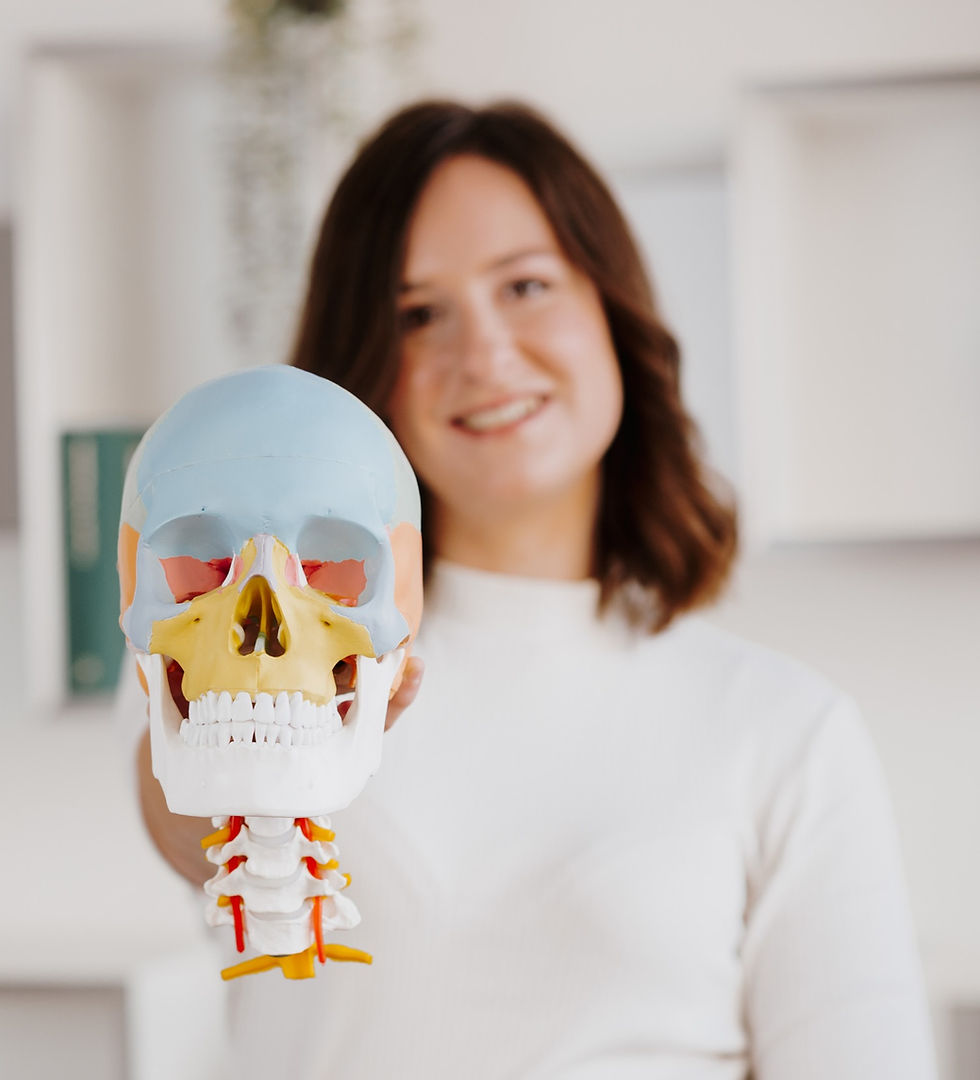Problems sucking, swallowing and breastfeeding
- Melanie Kirsten

- Jun 28, 2023
- 2 min read
Suckling, swallowing and breastfeeding problems in the newborn period are not uncommon and cause your baby difficulties in eating. Food intake is essential for the healthy development of your child.
Difficulties can arise when breastfeeding or bottle-feeding if your baby has problems latching, sucking or swallowing. It may also be the case that your child drinks too restlessly or frantically and swallows too much air, which in turn can lead to bloating and indigestion. Perhaps you have also noticed that your baby often chokes or spits out milk?
These phenomena can arise from immaturity, malformations (cleft lip and palate, etc.), genetic or neurological diseases, metabolic disorders, infections, jaundice, narrowing of the birth canal or compression the base of the skull. The nerves that control sucking and drinking emanate from the base of the skull and can adversely affect sucking, swallowing, and breastfeeding when irritated.
In principle, this can occur at birth and can be treated well osteopathically.
If you notice your baby being very restless when breastfeeding or feeding, it could be because the diaphragm is tense, which can lead to air swallowing. Possible space restrictions or constrained positions in the uterus or cervical spine malalignments could also negatively affect sucking, swallowing and breastfeeding. These symptoms can usually be resolved quickly with gentle osteopathic techniques.
In addition to treatment by the pediatrician and the midwife or lactation consultant, the osteopath can support your baby with its initial problems. An osteopathic examination can be used to feel and treat possible tension and dysfunction. The mums and dads are also involved in the treatment, which makes it easier for your baby to drink at home.
In the case of breastfeeding problems, possible dysfunctions in the mother must always be considered, especially blockages or dysfunctions in the thoracic spine
and the ribs (often after the Kristeller maneuver) as well as possible dysfunctions of the sacrum or occiput. These structures can affect the autonomic nervous system and possibly disrupt milk flow. In addition, the hypothalamus and the pituitary gland hormonally control milk production via the secretion of prolactin and oxytocin.
When do I have to see the doctor?
If your baby has these symptoms over a longer period of time or if they become acute, it could lead to complications such as weight loss, digestive disorders or a difficult parent-child bond. Please see your pediatrician for clarification as soon as possible to rule out potential serious illnesses.
To learn more about how Mel can accompany and support you and your baby during the newborn period, book an appointment at
Check up at:
https://www.doctolib.de/osteopath/muenchen/melanie-kirsten.
In order to facilitate the flow of reading, the simultaneous use of the language forms male and female (male/female) was avoided. All personal and professional designations apply equally to all genders.





Comments